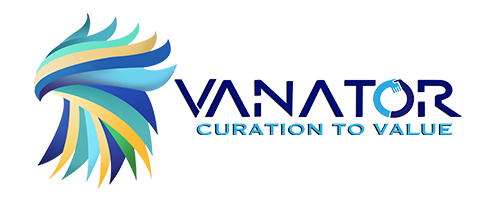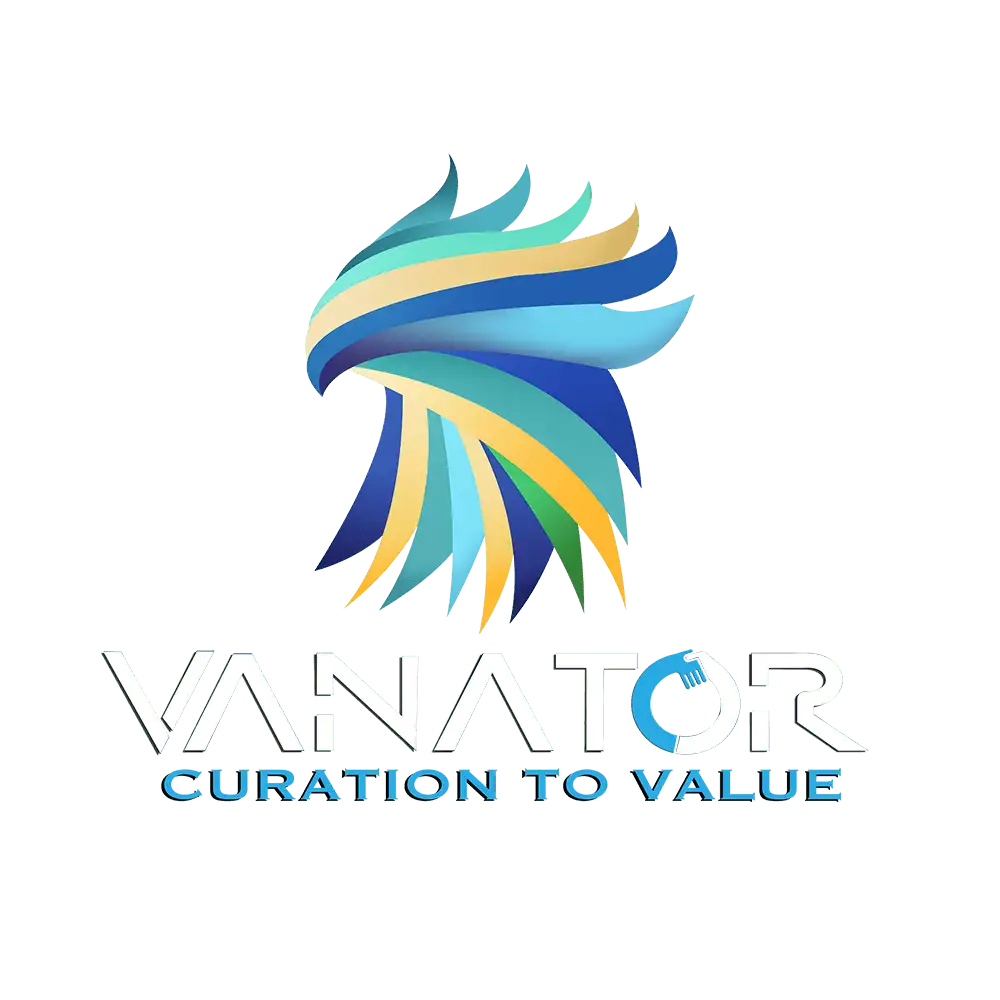Discover how AI and Automation in RPO are transforming recruitment in 2025—driving faster hiring, smarter decisions, and superior candidate experiences.
- Home
- Blogs
- AI and Automation in RPO: Future-Proofing Recruitment for 2025
AI and Automation in RPO: Future-Proofing Recruitment for 2025
Discover how AI and Automation in RPO are transforming recruitment in 2025—driving faster hiring, smarter decisions, and superior candidate experiences.
Key Takeaways:

Introduction
The recruitment landscape is experiencing a seismic transformation as artificial intelligence and automation reshape how organizations discover, engage, and hire talent. Recruitment Process Outsourcing (RPO) providers are no longer simply delegating hiring tasks—they’re building intelligent, scalable recruitment solutions powered by cutting-edge AI technologies. As the global RPO market continues its strong growth trajectory into 2025, organizations are recognizing that AI-driven recruitment is not just an enhancement but a fundamental necessity for staying competitive in today’s fiercely contested talent marketplace.

Understanding RPO in the AI Era
Recruitment Process Outsourcing has evolved from a cost-saving measure into a strategic business function that leverages advanced technologies to optimize talent acquisition. RPO involves transferring all or part of an organization’s recruitment activities to an external service provider who manages everything from candidate sourcing and screening to interview coordination and onboarding. The integration of artificial intelligence has transformed traditional RPO models by eliminating manual processes, accelerating candidate screening, and creating more consistent candidate experiences.
Companies across industries are shifting to RPO services in 2025 to scale hiring processes, improve talent quality, and enhance candidate experiences. Key drivers fueling this transformation include global talent shortages, the normalization of remote and hybrid work models, the need for faster time-to-hire, increasing demand for specialized roles, and competitive pressure to enhance employer branding. The market is projected to reach significant growth milestones, with the AI talent acquisition market specifically expected to hit $1.35 billion in 2025, growing at an annual rate of 18.9%.
AI as the Foundation of Modern RPO

From Enhancement to Essential Infrastructure:
Artificial intelligence is no longer a supplementary tool in RPO—it has become the foundation of modern recruitment workflows. AI is fundamentally changing Recruitment Process Outsourcing by making hiring processes faster, fairer, and more data-driven. The transformation extends across multiple dimensions of the recruitment lifecycle, from initial candidate identification to final onboarding.
AI-powered tools are streamlining recruitment workflows and enhancing decision-making and candidate experience like never before. A BCG survey of chief human resources officers reveals that 70% of companies experimenting with AI do so within HR, making talent acquisition their top priority. This widespread adoption demonstrates that AI recruitment is not a futuristic concept but a present-day reality reshaping how organizations build their workforce.

Core AI Applications Transforming RPO:
AI is revolutionizing RPO through several critical applications that directly impact recruitment efficiency and quality. Resume screening and candidate ranking now leverage AI parsing that goes beyond simple keyword matching to evaluate context, synonyms, and skill clusters. Interview scheduling automation eliminates the endless back-and-forth of coordinating calendars, with AI systems syncing with team schedules and allowing candidates to book available slots themselves.
AI tools can summarize candidate responses for hiring teams, ensuring that decision-makers receive concise, relevant information without wading through hours of interview recordings. The technology matches talent more precisely to job requirements by analyzing multiple dimensions of candidate profiles against detailed job specifications. By accelerating repetitive tasks, AI reduces time-to-hire significantly and allows recruiters to focus on human-centric activities like relationship building and final decision-making.
Top RPO Trends Powered by AI for 2025
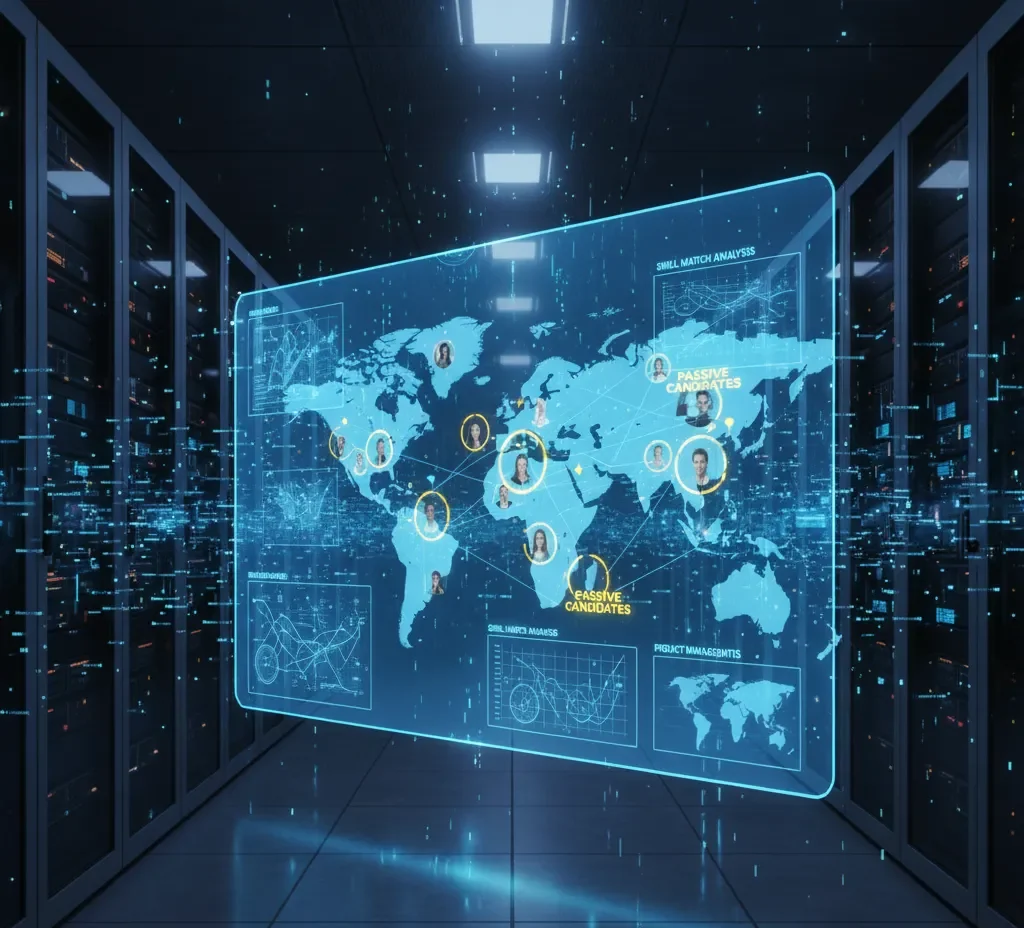
Intelligent Candidate Sourcing and Screening:
The best talent is not always actively searching through job boards. Top-tier automated recruitment software leverages AI sourcing tools that continuously scan millions of public profiles, hunting for passive candidates who match exact hiring criteria. These sophisticated systems do not merely match keywords—they understand context, spot transferable skills, and pinpoint individuals with the perfect blend of experience and potential.
Intelligent resume parsing represents a game-changing feature that instantly extracts and organizes key information from any CV, regardless of format. It populates candidate profiles with structured data on skills, experience, and education, performing the heavy lifting that traditionally consumed recruiter bandwidth. This systematic approach ensures every applicant is measured against the same yardstick, leveling the playing field and helping dial down unconscious bias that can creep into the early, critical stages of hiring.
AI significantly enhances recruitment efficiency by reducing screening costs by 75% and shortening the average time-to-hire from 44 days to just 11 days. These dramatic improvements in speed and cost-effectiveness make AI-powered sourcing and screening essential components of competitive RPO strategies.

Predictive Analytics and Data-Driven Decision Making:
Predictive analytics is empowering RPO firms to make smarter hiring decisions by analyzing patterns in past hiring data to predict which candidates are most likely to succeed in different roles. Organizations using predictive hiring see 24% better quality of hire and 70% faster time-to-fill compared to traditional methods. Metrics such as quality-of-hire, cost-per-hire, and candidate conversion rates are being used to refine hiring strategies continuously.
Sophisticated AI and machine learning models help recruiters with candidate sourcing and predict how successful candidates might be in any given role, based on comprehensive candidate data including previous job history, skills, and qualifications. This allows recruiting teams to make better data-driven decisions without relying on gut feeling or intuition, which has been the traditional approach until now. Companies like Wells Fargo have utilized predictive analytics to assess over two million candidates, resulting in a 15% improvement in teller retention and a 12% improvement in personal banker retention.
Predictive analytics also enables organizations to forecast hiring needs accurately by analyzing historical data, business projections, and market trends. This proactive approach enables recruiters to stay ahead of the curve, ensuring they have the right talent in place when needed and minimizing the risk of understaffing or overstaffing.
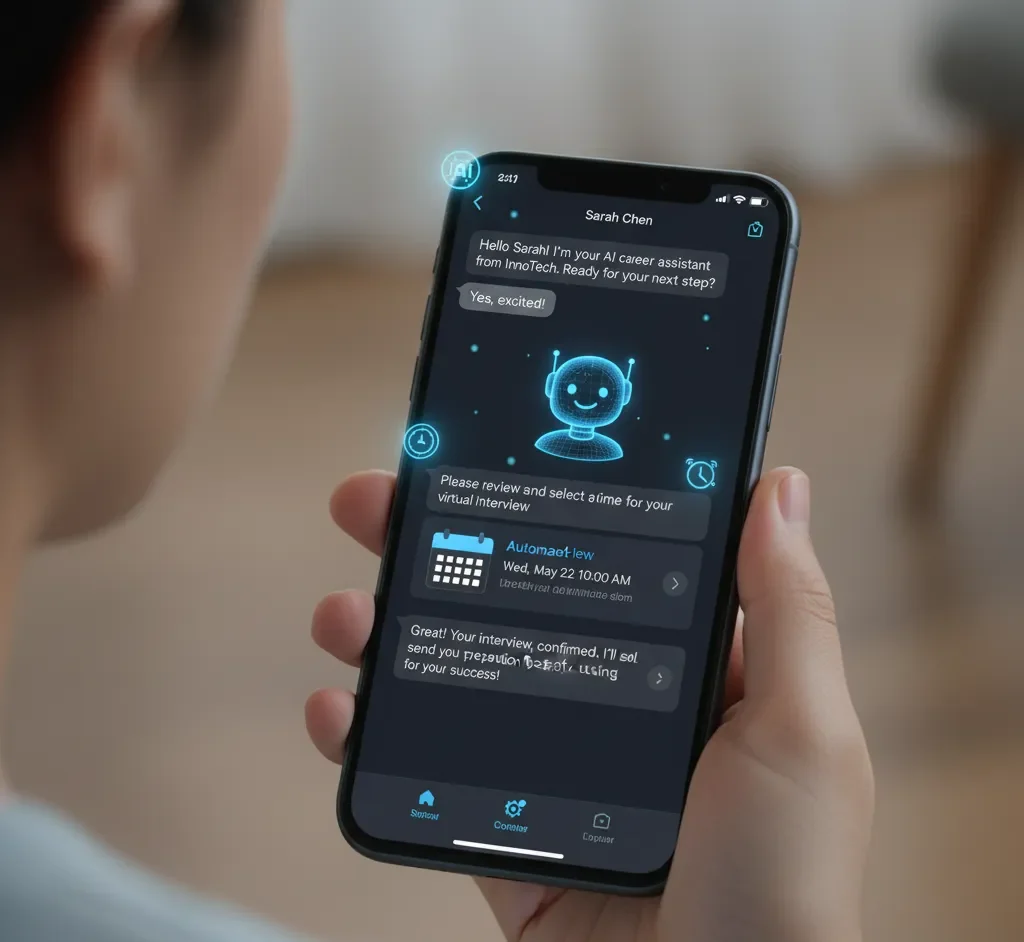
Hyper-Personalized Candidate Experience:
Candidate experience has emerged as a critical differentiator in competitive talent markets, and agentic AI elevates personalization by acting on behalf of recruiters in real-time. The current level of personalization has advanced through chatbots, video interviews, and interactive platforms that create individualized candidate experiences, boosting engagement and satisfaction while enhancing employer brand reputation.
AI chatbots communicate with candidates around the clock, answering questions about roles and companies instantly. This constant availability has boosted application completion rates by 41% and made time-to-first-interview 37% faster. With agentic AI capabilities, chatbots can personalize tone,
escalate complex queries, and trigger follow-up actions like sending interview preparation materials without requiring any recruiter input.
Modern hiring has shifted from old methods to AI-powered approaches where structured AI-led interviews check both technical and soft skills, with only the best performers advancing to human interviews. Candidates from AI-led interviews succeed in human interviews at a 53.12% rate compared to just 28.57% from traditional resume screening. This dramatic improvement demonstrates how AI personalization enhances not just candidate experience but actual hiring outcomes.

Diversity, Equity, and Inclusion Focus:
AI models do not come with unconscious bias the way human brains unintentionally do. This characteristic is particularly helpful for recruiting software because systems built on AI compare candidates based on their skills and other relevant details—such as credentials and years of experience—without giving significant weight to characteristics that could lead to discrimination. Most diversity recruiting platforms run off AI models for exactly this reason.
RPO providers maintain DEI as their main priority by supporting inclusive hiring practices while working with global ESG initiatives to help organizations establish diverse and equitable workplaces. However, it is crucial to regularly audit any hiring software using AI to rank candidates to ensure there are no biases within the system itself. Maintaining human oversight remains essential to handle complex situations and ensure that recruitment decisions align with organizational values and culture.
Comprehensive Benefits of AI in RPO

Operational Efficiency and Speed:
AI-powered automation in RPO delivers transformative operational improvements across the entire recruitment lifecycle. Businesses using RPO models report a 40% reduction in time-to-hire and a 30% improvement in hiring quality. Predictive analytics can streamline recruitment significantly, shortening hiring cycles by 85% and the average time to fill positions by 25%. These efficiency gains translate directly into competitive advantages, enabling organizations to secure top talent before competitors can act.
Automation remains the most visible and widely adopted application of AI in recruitment, but in 2025, automation is moving toward agentic AI-driven orchestration where systems not only suggest next steps but carry them out automatically. Companies have embraced several key AI applications, with 70% using AI to write job descriptions and marketing emails, 70% letting AI handle interview scheduling and routine duties, 54% using AI to match skills with job requirements, and 88% screening candidates with AI tools.

Enhanced Quality of Hire:
AI enables organizations to look beyond resumes, analyzing skill patterns, performance predictors, and cultural fit to identify candidates who will truly succeed in specific roles. When combined with RPO recruitment process outsourcing, this ensures that hiring strategies are not only efficient but also aligned with long-term business goals. Organizations achieve better hires at scale through AI-driven talent identification.
The systematic evaluation provided by AI ensures consistency in candidate assessment that human recruiters cannot match when processing high volumes of applications. This consistency, combined with predictive insights about candidate success probability, results in measurably better hiring outcomes. The technology reduces the risk of poor hires that can cost organizations significantly in terms of productivity losses, training investments, and team disruption.

Cost Optimization:
AI in recruitment outsourcing enables cost savings through automation of time-consuming manual processes. By reducing screening costs by 75% and cutting time-to-hire dramatically, AI directly lowers recruitment expenses while simultaneously improving results. Organizations can right-size their workforce plans instantly, whether facing a hiring surge or a lean cycle, without adding overhead.
Scalable recruitment solutions with AI integration provide faster response times to market shifts, talent pipelines built on predictive analytics, and the ability to prioritize quality without sacrificing speed. This makes recruitment not just scalable but future-proof, enabling organizations to adapt to changing business needs without proportional increases in recruitment costs.

Strategic Workforce Planning:
AI empowers RPO providers to deliver strategic workforce resilience by providing real-time data insights that support proactive talent management. Active talent pooling and the development of candidate communities allow RPO providers to maintain long-term relationships with passive candidates and fill roles faster when demand arises. This strategic approach transforms recruitment from a reactive function into a proactive driver of business capability.
Predictive models enable organizations to anticipate employee departures while making strategic data-based decisions, resulting in better recruitment efficiency and risk reduction. By analyzing business projections and market trends alongside historical hiring data, AI-powered RPO helps organizations build workforce strategies that align with long-term business objectives.
Essential AI Tools and Technologies in RPO
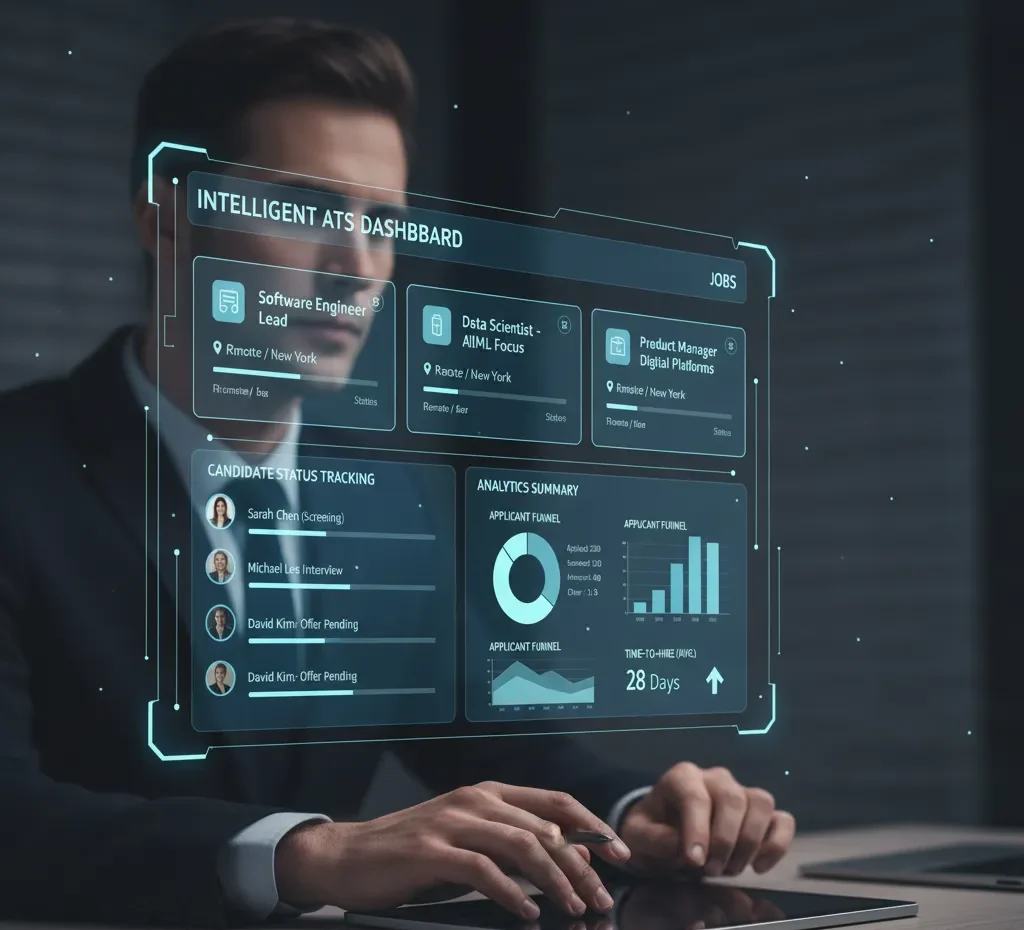
AI-Powered Applicant Tracking Systems:
Modern Applicant Tracking Systems (ATS) now incorporate AI features that allow companies to post jobs across multiple channels, track candidate progress, automate communication workflows, and generate detailed hiring analytics. A recruiting agency or a company handling hiring internally can use this software to facilitate the process, ensuring the hiring of quality candidates and that all applicants receive appropriate responses.
These integrated platforms form unified recruitment ecosystems, improving efficiency and enabling seamless collaboration between hiring teams and candidates. The integration of ATS with CRM systems, APIs, and other platforms creates comprehensive technology stacks that support every stage of the recruitment journey.
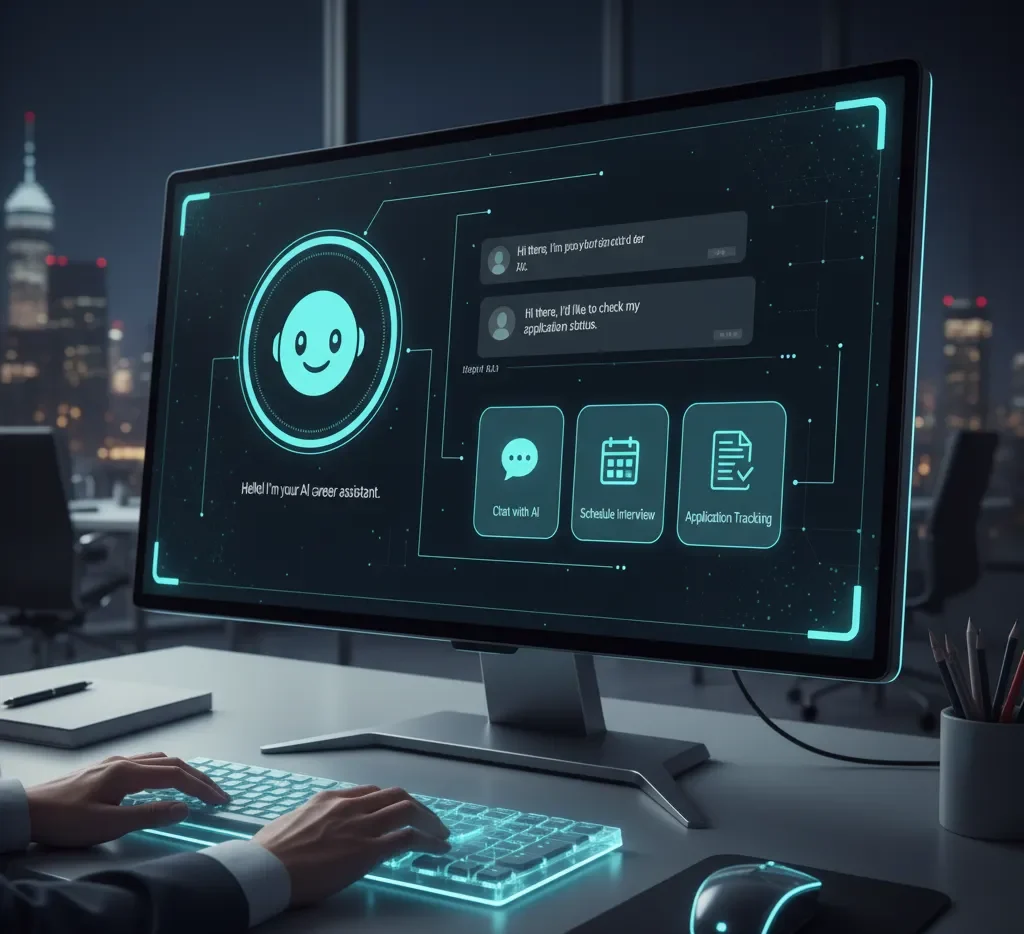
Conversational AI and Chatbots:
AI chatbots serve as primary staffing tools that save companies time and money by doing things staff would traditionally do, including answering candidate questions, providing application status updates, collecting preliminary information, and scheduling initial screening calls. Chatbots can be customized with tailored input, helping to answer precise queries and reducing strain on in-house staff while responding at any time.
The implementation of conversational AI represents a significant advancement in candidate engagement, with 63% of staffing firms reporting increased candidate engagement after implementing AI solutions. These tools ensure that candidates receive immediate responses regardless of time zone or business hours, dramatically improving candidate experience and conversion rates.

Video Interview and Assessment Platforms:
AI-driven video interview platforms now represent a standard component of modern recruitment workflows, with 88% of companies screening candidates using AI tools. These platforms assess both technical capabilities and soft skills through structured evaluations that provide consistent, objective
measurements across all candidates. The technology can analyze verbal responses, facial expressions, and other indicators to provide recruiters with comprehensive candidate assessments.
Online assessment platforms and AI-driven tools automate the evaluation of candidates’ skills and qualifications, with systems that can score assessments and provide detailed feedback. This automation ensures that only candidates who meet specific competency thresholds advance to human-conducted interviews, optimizing recruiter time and improving overall hiring efficiency.

Predictive Analytics Platforms:
Platforms for artificial intelligence recruitment now collect hiring data and derive predictions about candidate success probability, tenure potential, and cultural fit. These predictions help companies avoid hiring risks and make data-backed staffing decisions. Predictive analytics involves collecting and preparing data, building models to identify patterns among top performers, scoring candidates against success benchmarks, and generating actionable insights.
Organizations leverage these insights to prioritize high-potential applicants, forecast turnover rates, and optimize workforce planning strategies. The technology represents one of the transformative talent acquisition tools that firms can leverage to gain sustainable competitive advantages in talent markets.
Overcoming Implementation Challenges

Managing Organizational Resistance:
Introducing AI into recruitment often meets resistance from recruiters who fear technology will replace them and managers who hesitate to invest time and resources into adoption. In some organizations, long-standing processes and traditional hiring methods create natural inertia against new tools. This resistance can manifest as low engagement, reluctance to try new features, or outright skepticism about the value of AI.
The strategy for overcoming resistance involves helping stakeholders understand that AI adoption is changing recruiters’ roles rather than replacing them. Starting with AI implementation in small, manageable ways—like automating candidate screening or scheduling interviews—helps build confidence and demonstrate value. Holding interactive workshops and open discussions to address concerns, along with providing hands-on training, helps recruiters feel confident using AI and understand how it frees them to focus on meaningful interactions.

Ensuring Integration with Existing Systems:
One of the primary challenges in implementing AI is integrating new tools with existing HR and recruitment platforms. Successful integration requires seamless data flow and compatibility, which can be particularly complex in organizations with legacy systems. Companies should select RPO providers with proven experience in system integration and request detailed technical specifications about how AI tools will connect with existing infrastructure.
Businesses can mitigate RPO risks by selecting providers with industry expertise, defining clear performance metrics, ensuring data security compliance, and negotiating flexible contract terms. Regular communication and collaboration with the RPO provider help maintain control and alignment throughout the implementation process.

Addressing Data Security and Privacy Concerns:
With AI handling sensitive candidate information, it is vital to ensure that data is protected and compliant with international privacy regulations like GDPR and ISO 2700 series standards. Predictive hiring involves collecting and analyzing significant amounts of personal information, raising legitimate privacy concerns that organizations must address transparently. Key challenges include potential bias in AI algorithms, lack of transparency in decision-making processes, and over-reliance on automation.
When assessing an RPO provider, organizations should ask how their AI tools are validated, what human oversight exists, and how they manage data governance. Companies should request detailed information about data security measures, compliance certifications, and protocols for handling candidate information throughout the recruitment lifecycle.

Maintaining Human Oversight and Ethical AI Use:
While AI offers numerous advantages, maintaining human oversight is crucial. AI tools can enhance recruitment processes, but human judgment remains indispensable for handling complex situations and ensuring that recruitment decisions align with organizational values and culture. Enthusiasm around AI must be tempered with caution regarding algorithmic bias in candidate selection, lack of transparency in decision-making models, and concerns over candidate trust.
The approach is not about replacing recruiters but about giving them high-quality tools to help them work smarter. AI benefits include reducing repetitive tasks and allowing recruiters to spend more time on strategy and relationship-building activities that require human judgment and emotional intelligence. Organizations must establish clear governance frameworks that define when human intervention is required and ensure that AI recommendations are treated as decision support rather than final determinations.
Future Outlook: RPO in 2025 and Beyond

Agentic AI and Autonomous Recruitment Systems :
The next generation of AI in recruitment is moving toward agentic systems that can autonomously execute complex workflows with minimal human intervention. This new generation of AI is far more capable of simulating recruiter-like communication and judgment than the HR automation tools of the past. Agentic AI systems can initiate outreach to top candidate matches automatically, reschedule interviews proactively, flag conflicts, and ensure all parties are prepared without requiring explicit instructions for each action.
These autonomous capabilities represent a fundamental shift in how recruitment operates, transforming AI from a tool that assists recruiters into an intelligent agent that handles entire processes end-to-end. Organizations that embrace these advanced AI capabilities will achieve unprecedented levels of efficiency and scalability in their recruitment operations.
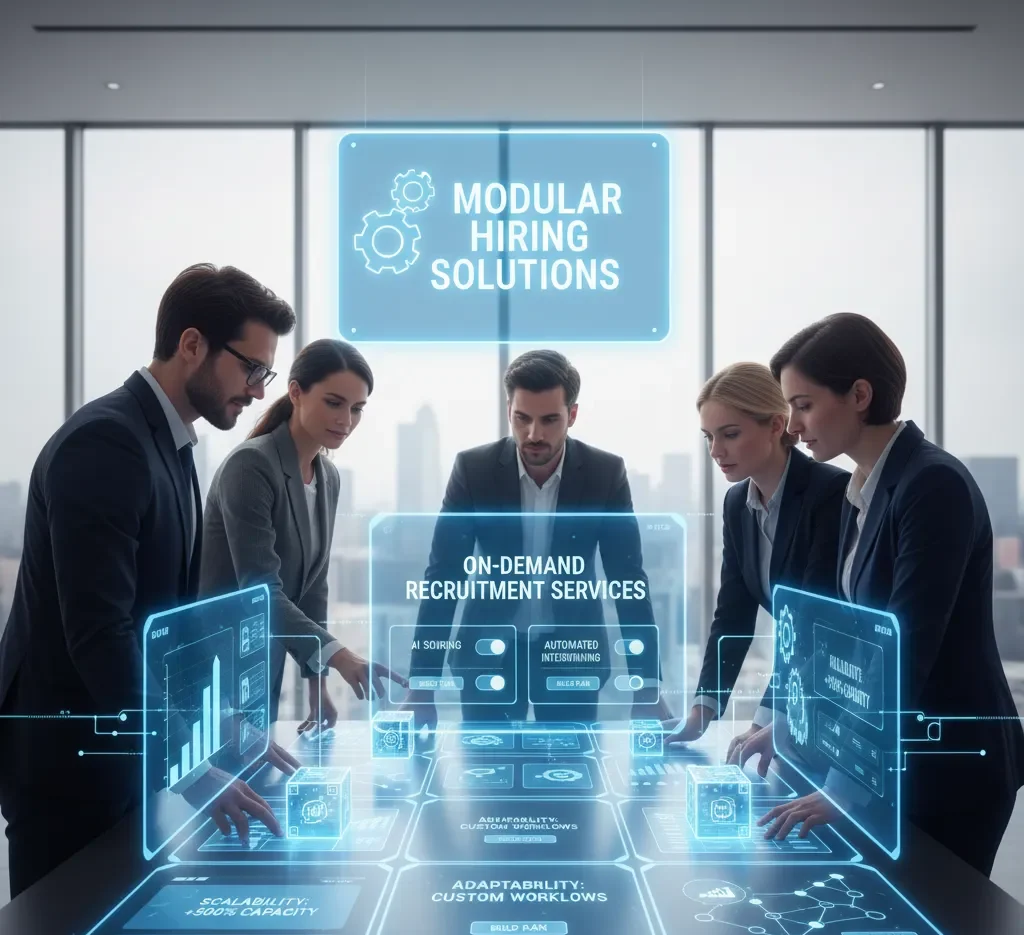
Flexible and Modular RPO Models:
Flexible and modular RPO models allow clients to choose services on demand, scale support when needed, and avoid long-term obligations—making recruitment more responsive and cost-effective. This flexibility is particularly valuable in uncertain economic environments where hiring needs can fluctuate significantly. Organizations can select specific RPO services that address their most pressing challenges while retaining control over other aspects of recruitment.
The combination of AI-powered capabilities with flexible engagement models creates optimal conditions for organizations to access advanced recruitment technologies without massive upfront investments or long-term commitments. This democratization of advanced recruitment technology enables companies of all sizes to compete effectively for top talent.
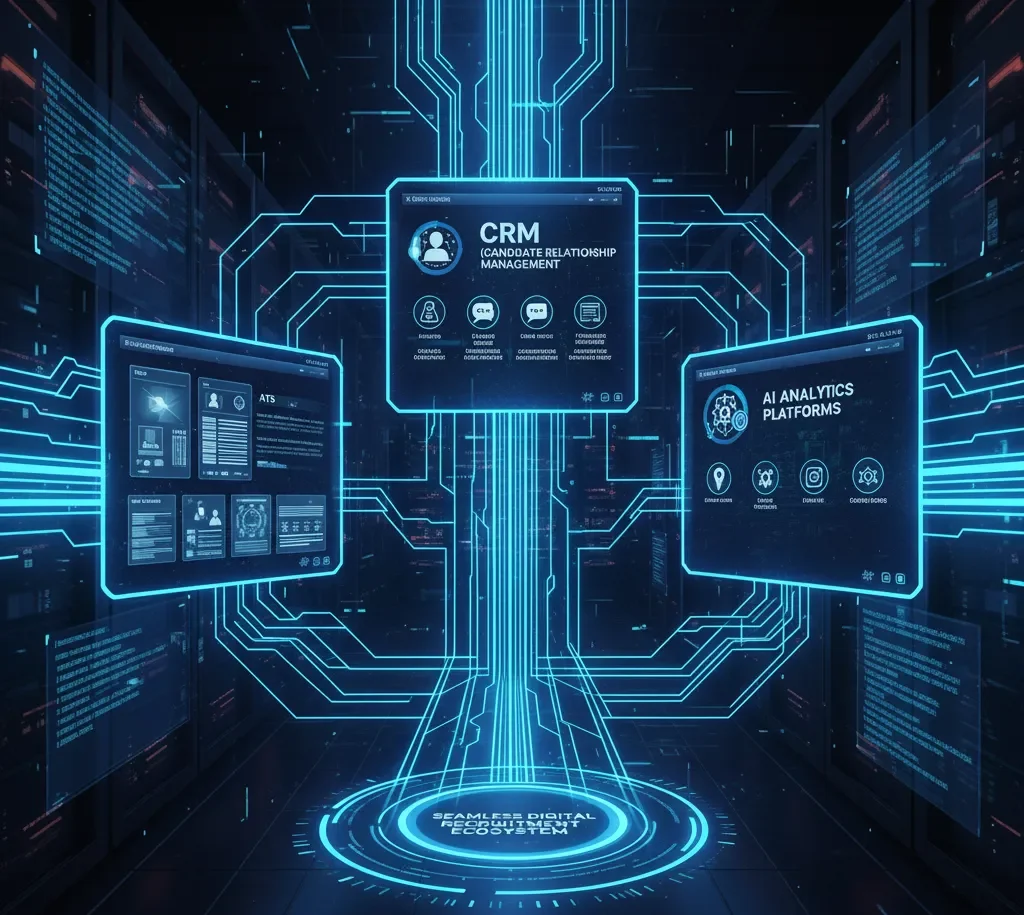
Integrated Talent Ecosystems:
The future of RPO involves creating comprehensive talent ecosystems that connect multiple platforms, data sources, and engagement channels into unified systems. The integration of ATS, CRM, APIs, video interview platforms, assessment tools, and analytics dashboards forms seamless recruitment environments where information flows automatically and insights are generated in real-time.
Strategic talent pooling and the development of candidate communities represent key components of these ecosystems, allowing RPO providers to maintain long-term relationships with passive candidates and activate them quickly when opportunities arise. This community-based approach transforms recruitment from transactional hiring into ongoing talent relationship management.
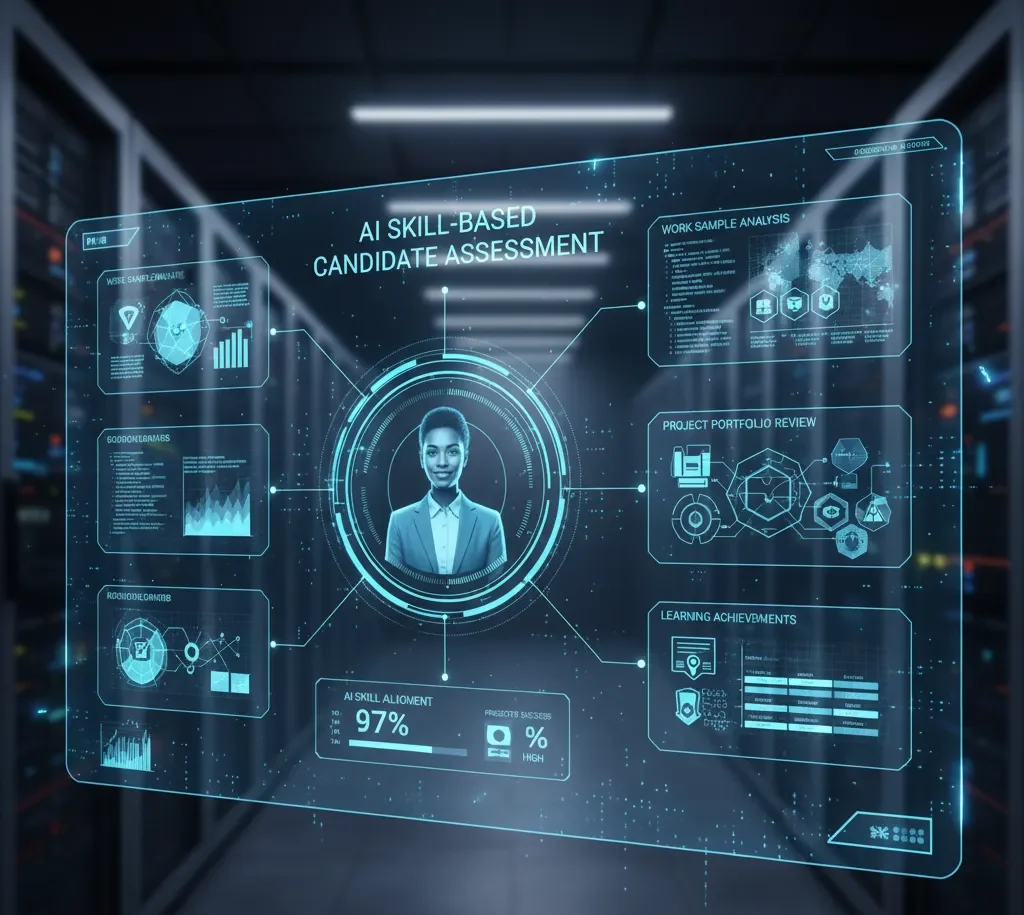
Skills-Based Hiring and Continuous Learning:
The shift toward skills-based hiring represents a fundamental change in how organizations evaluate candidates, moving beyond traditional credentials to focus on actual capabilities and potential. AI enables precise skills assessment by analyzing diverse data sources including work samples, project histories, assessment results, and learning activities. This approach opens talent pools significantly, enabling organizations to identify high-potential candidates who might be overlooked in traditional credential-based screening
Recruitment in 2025 emphasizes AI and automation, virtual and hybrid hiring, skills-based evaluation, and inclusive practices that expand access to opportunities. Organizations that adopt these progressive approaches position themselves to attract diverse talent and build more innovative, resilient workforces.

Conclusion
AI and automation have fundamentally transformed Recruitment Process Outsourcing from a tactical cost-saving measure into a strategic capability that drives competitive advantage. The integration of artificial intelligence into RPO enables organizations to hire faster, make better decisions, reduce costs, and create superior candidate experiences. As the global RPO market continues expanding and AI technologies become more sophisticated, organizations that embrace these innovations will be best positioned to secure the talent they need to achieve their business objectives.
The future of recruitment is already here, and it is AI-driven. Companies that partner with RPO providers offering advanced AI capabilities gain recruitment partners that prioritize speed, precision, and scalability without cutting corners. By blending intelligent automation with human expertise, these organizations create recruitment functions that are not just efficient but genuinely strategic—capable of adapting to changing market conditions, identifying exceptional talent, and building workforces that drive sustained business success.
The transformation toward AI-powered RPO represents more than technological advancement—it reflects a fundamental reimagining of how organizations approach talent acquisition. Those who embrace this transformation will find themselves with capabilities that seemed impossible just years ago: the
ability to identify perfect-fit candidates from global talent pools in minutes, predict hiring needs before they become urgent, deliver personalized experiences to thousands of candidates simultaneously, and make data-driven decisions that consistently improve hiring outcomes. This is the promise of AI and automation in RPO—and it is reshaping recruitment for 2025 and beyond.
Frequently Asked Questions (FAQs)
AI now optimizes bids, creatives, and targeting in real time—maximizing conversions with less manual work, while requiring strategic guidance for best results.
Focus on intent-driven segmentation, AI-powered Performance Max campaigns, robust ad assets, and persistent optimization
First-party data enables privacy-safe retargeting, segmentation, and lookalike modeling—driving superior results as third-party cookies fade out.
Yes. Local ad assets, location targeting, and mobile search optimization make Google Ads vital for driving store visits, calls, and local leads.
-
 AI-Driven SEO Tools and Services:Boosting Rankings with AI
AI-Driven SEO Tools and Services:Boosting Rankings with AI -
 Best Manufacturing Employment Agencies In USA
Best Manufacturing Employment Agencies In USA -
 Best Technical Search Engine Optimization Agencies in USA
Best Technical Search Engine Optimization Agencies in USA -
 Best Email Marketing Services in USA 2025
Best Email Marketing Services in USA 2025 -
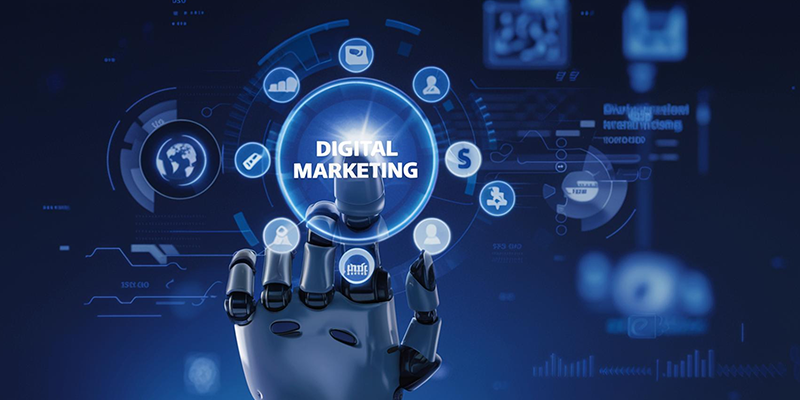 Best AI-Driven Digital Marketing in USA 2025
Best AI-Driven Digital Marketing in USA 2025 -
 Best Social Media Marketing Services in New York 2025
Best Social Media Marketing Services in New York 2025 -
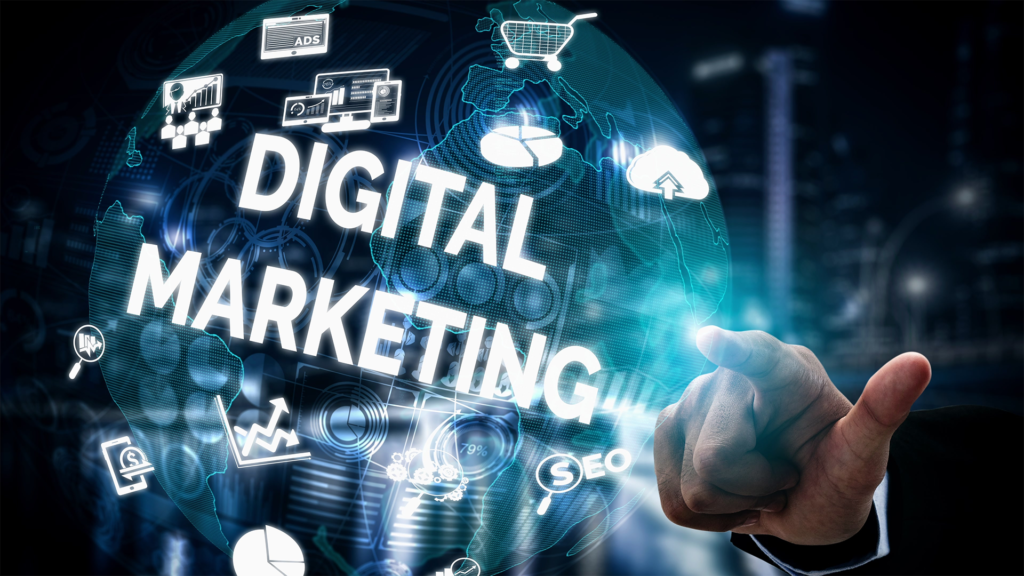 Best Digital Marketing Services in New York 2025
Best Digital Marketing Services in New York 2025 -
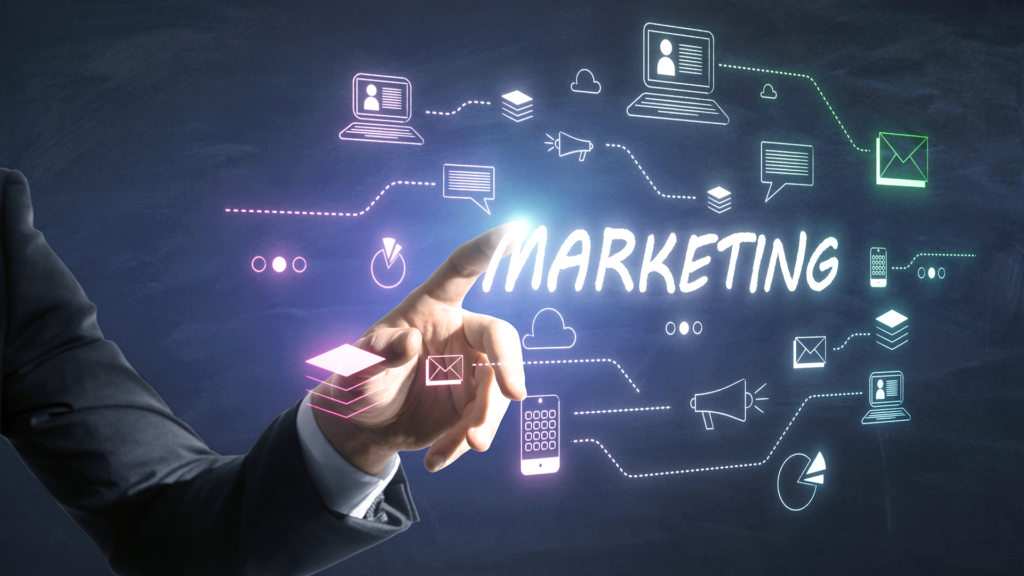 Best Digital Marketing Services in Boston 2025
Best Digital Marketing Services in Boston 2025 -
 Best SEO Services in Boston 2025
Best SEO Services in Boston 2025 -
 Best Social Media Marketing Services in UAE
Best Social Media Marketing Services in UAE -
 Best Website Development Services in Dubai
Best Website Development Services in Dubai -
 Best Performance Marketing Services in Dubai
Best Performance Marketing Services in Dubai -
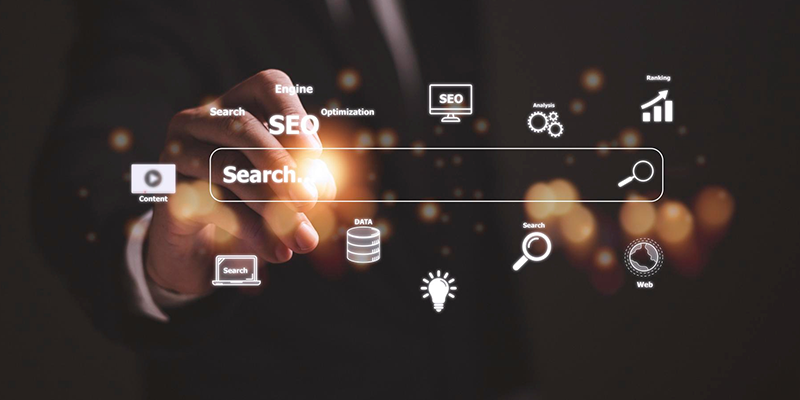 Best SEO Services in Dubai
Best SEO Services in Dubai -
 Best Social Media Marketing Services in Dubai
Best Social Media Marketing Services in Dubai -
 Best Digital Marketing Services in Dubai
Best Digital Marketing Services in Dubai -
 Best Performance Marketing Services in Australia
Best Performance Marketing Services in Australia -
 Best Content Writing Services in Thailand
Best Content Writing Services in Thailand -
 Best Performance Marketing Services in Thailand
Best Performance Marketing Services in Thailand -
 Best SEO services in Thailand
Best SEO services in Thailand -
 Best Mobile App Development Services in Thailand
Best Mobile App Development Services in Thailand -
 Best Website Development Services in Thailand
Best Website Development Services in Thailand -
 Best Social Media Marketing Services in Thailand
Best Social Media Marketing Services in Thailand -
 Best Digital Marketing Services In Thailand
Best Digital Marketing Services In Thailand -
 Best Social Media Strategies in 2025 for Business Growth
Best Social Media Strategies in 2025 for Business Growth -
 Best Mobile App Development Services In Australia
Best Mobile App Development Services In Australia -
 Best Google Ads Services in Australia
Best Google Ads Services in Australia -
 Best SEO (Search Engine Optimization) services in Australia 2025
Best SEO (Search Engine Optimization) services in Australia 2025 -
 Best Email Marketing Services in Australia
Best Email Marketing Services in Australia -
 Best Graphic Design Services in Australia
Best Graphic Design Services in Australia -
 Top Content Writing Services in Australia
Top Content Writing Services in Australia -
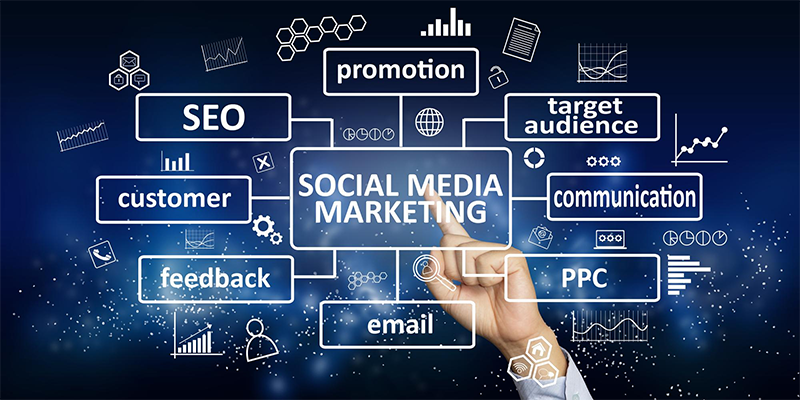 Top Social Media Marketing Services in Australia
Top Social Media Marketing Services in Australia -
 Best Digital Marketing Services in Australia
Best Digital Marketing Services in Australia -
 Best Website Development Services in Australia
Best Website Development Services in Australia
Also Read
Book a Free Consultation
Ready to elevate your customer experience? Don’t settle for ordinary support. Our dedicated consultants are standing by to match your enterprise with the highest-caliber customer service executives in the USA. From virtual assistants to specialized account managers, we have the expertise and talent pool to meet your needs.
Contact our team today to discuss how our tailored customer executive services can transform your support operations. Let us help you hire or outsource the best customer service executives in USA, so you can focus on growing your business with confidence. Together, we will build a world-class customer support team that drives loyalty and success.
